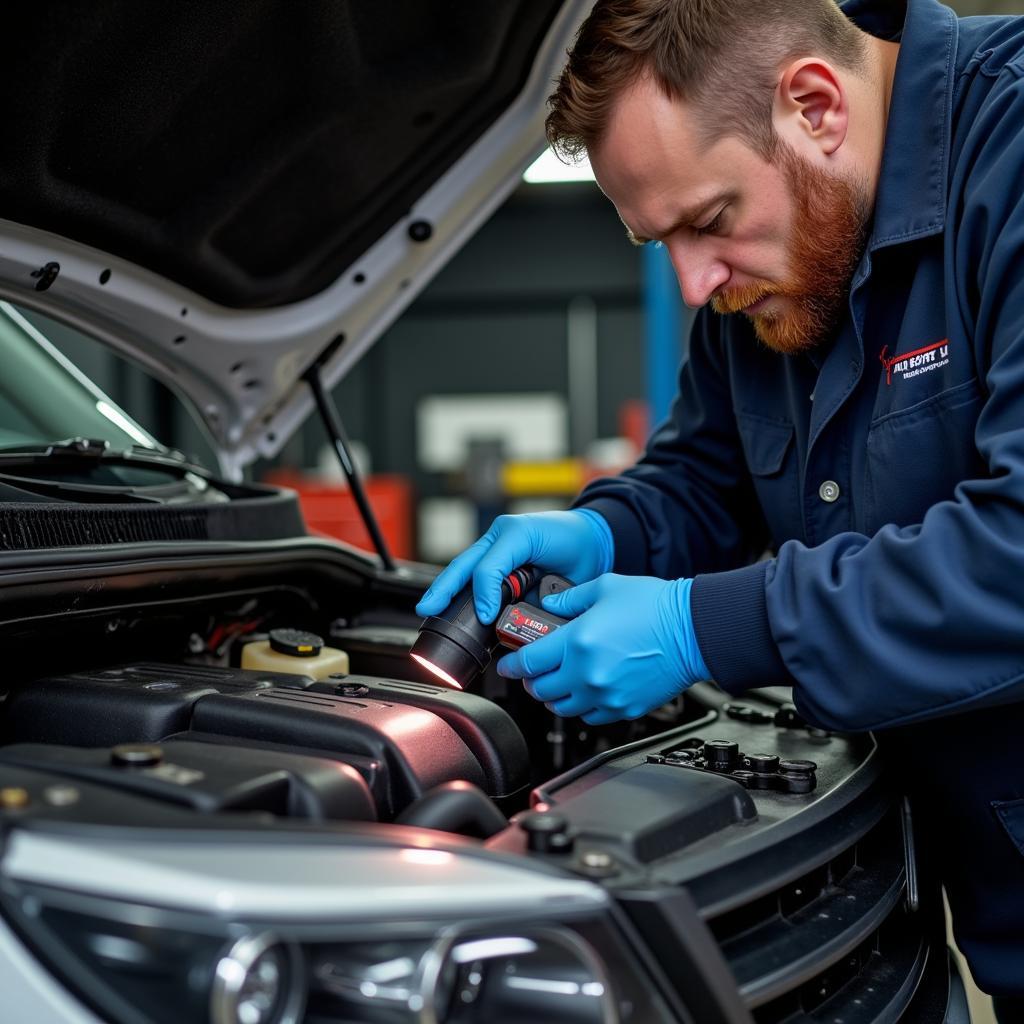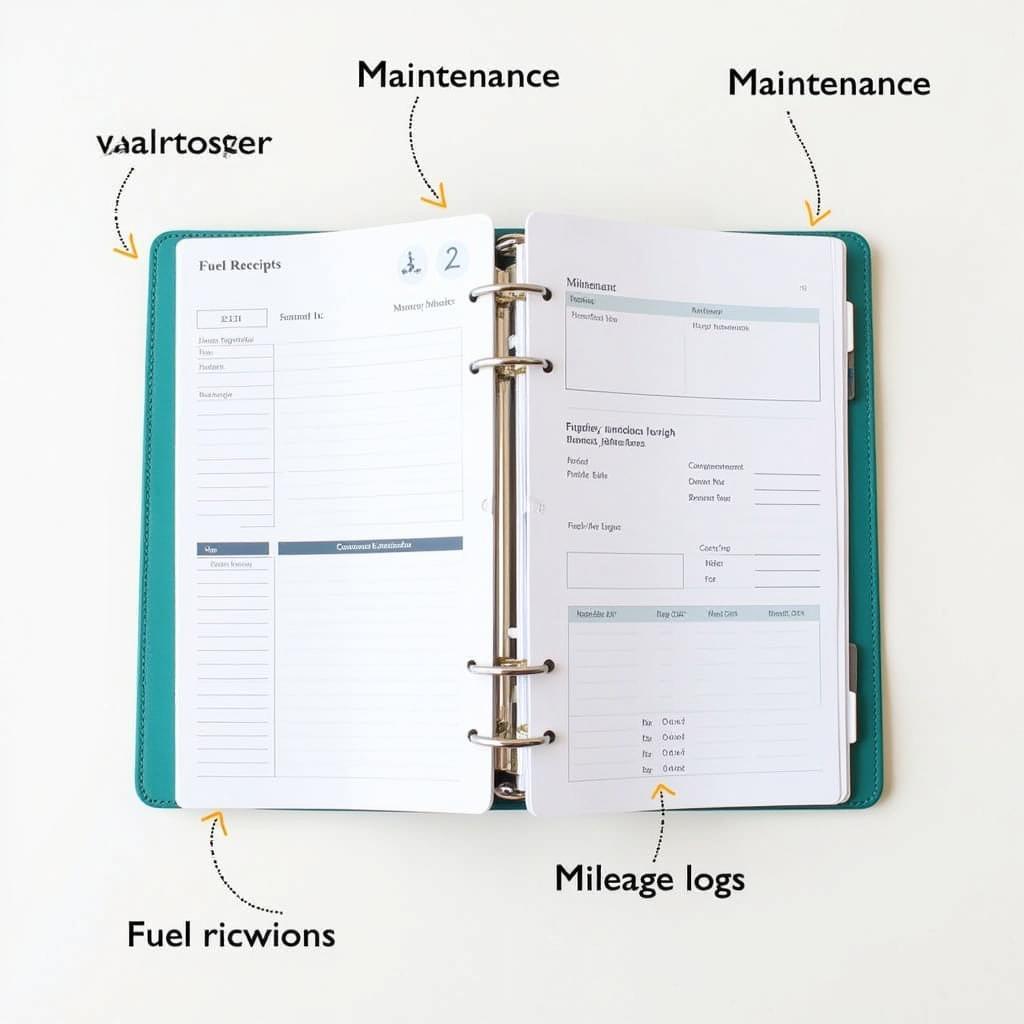You just bought your dream used car – congratulations! But then your heart sinks as you hear a strange noise coming from under the hood. Experiencing engine problems right after buying a used car can be incredibly frustrating and expensive. While there are never any guarantees when purchasing a used vehicle, this guide will equip you with the knowledge to minimize the risks and identify potential red flags before you hand over your hard-earned cash.
Common Engine Problems in Used Cars
Understanding the most common engine issues can help you ask the right questions and look for telltale signs during a test drive:
- Oil Leaks: Look for dark stains on the pavement or engine block. This could indicate a simple gasket issue or a more serious problem with seals.
- Overheating: Check the temperature gauge during the test drive, especially after idling or driving uphill. Overheating can signify a faulty thermostat, radiator, water pump, or head gasket.
- Strange Noises: Pay attention to any ticking, knocking, or squealing sounds coming from the engine. These noises can be symptomatic of worn bearings, loose belts, or timing chain issues.
- Smoke from the Exhaust: Blue smoke usually indicates burning oil, white smoke suggests coolant leaking into the combustion chamber, and black smoke points towards a rich fuel mixture.
- Rough Idling or Stalling: A rough idle or stalling can be caused by numerous issues, including spark plug problems, clogged fuel injectors, or a faulty idle air control valve.
Protecting Yourself: Pre-Purchase Inspection is Key
A pre-purchase inspection by a trusted mechanic is the single most important step to avoid inheriting someone else’s engine problems. Here’s what to expect:
- Visual Inspection: The mechanic will examine the engine for signs of leaks, cracks, or corrosion. They will also check fluid levels and condition.
- Performance Test: The mechanic will test drive the vehicle, paying close attention to engine performance, transmission shifting, and unusual noises.
- Diagnostic Scan: Using a code reader, the mechanic can identify any stored fault codes that may indicate underlying issues.
- Compression Test: This test measures the pressure in each cylinder, helping to identify worn piston rings or valve problems.
 Mechanic inspecting a car engine
Mechanic inspecting a car engine
“A pre-purchase inspection is an absolute must when buying a used car,” says John Smith, a seasoned automotive engineer at AutoTipPro. “Think of it as an investment that could potentially save you thousands of dollars in costly repairs down the road.”
Red Flags to Watch Out For
Even if you’re not a mechanic, there are several warning signs you can spot yourself:
- Incomplete Service Records: If the seller can’t provide comprehensive maintenance history, proceed with caution. Lack of regular oil changes and other routine maintenance can significantly shorten an engine’s lifespan.
- Dirty Engine Bay: While not always a deal-breaker, an excessively dirty engine bay can make it difficult to spot leaks and can indicate neglect.
- Suspicious Smells: Sweet-smelling exhaust can indicate a coolant leak, while a strong gasoline odor might point to a fuel system issue.
What to Do if You Encounter Engine Problems
Don’t panic if you’ve already purchased a used car and experience engine problems.
- Review the Warranty: If the vehicle came with a warranty, check the terms to see if your issue is covered.
- Contact the Seller: Depending on the situation and the seller (private seller vs. dealership), you might be able to negotiate a repair or partial refund.
- Consult a Mechanic: Get a professional diagnosis and repair estimate from a trusted mechanic.
FAQs About Used Car Engine Problems
Q: How much does it cost to fix engine problems in a used car?
A: The cost of engine repair can vary greatly depending on the make and model of the car and the severity of the issue.
Q: Should I buy a used car with high mileage?
A: High mileage doesn’t necessarily mean a bad engine, but it does increase the risk of wear and tear. A pre-purchase inspection is crucial.
Q: How can I check the history of a used car?
A: You can obtain a vehicle history report from companies like Carfax or AutoCheck.
Don’t Let Engine Problems Derail Your Ride
Purchasing a used car can be a great way to save money, but engine problems can quickly turn your dream car into a nightmare. By understanding common issues, conducting thorough inspections, and knowing what red flags to look out for, you can significantly reduce your risk and enjoy miles of worry-free driving.
Need help diagnosing or resolving an engine issue with your car? Contact the experts at AutoTipPro at +1 (641) 206-8880 or visit our office at 500 N St Mary’s St, San Antonio, TX 78205, United States. We’re here to help get you back on the road safely.






Leave a Reply